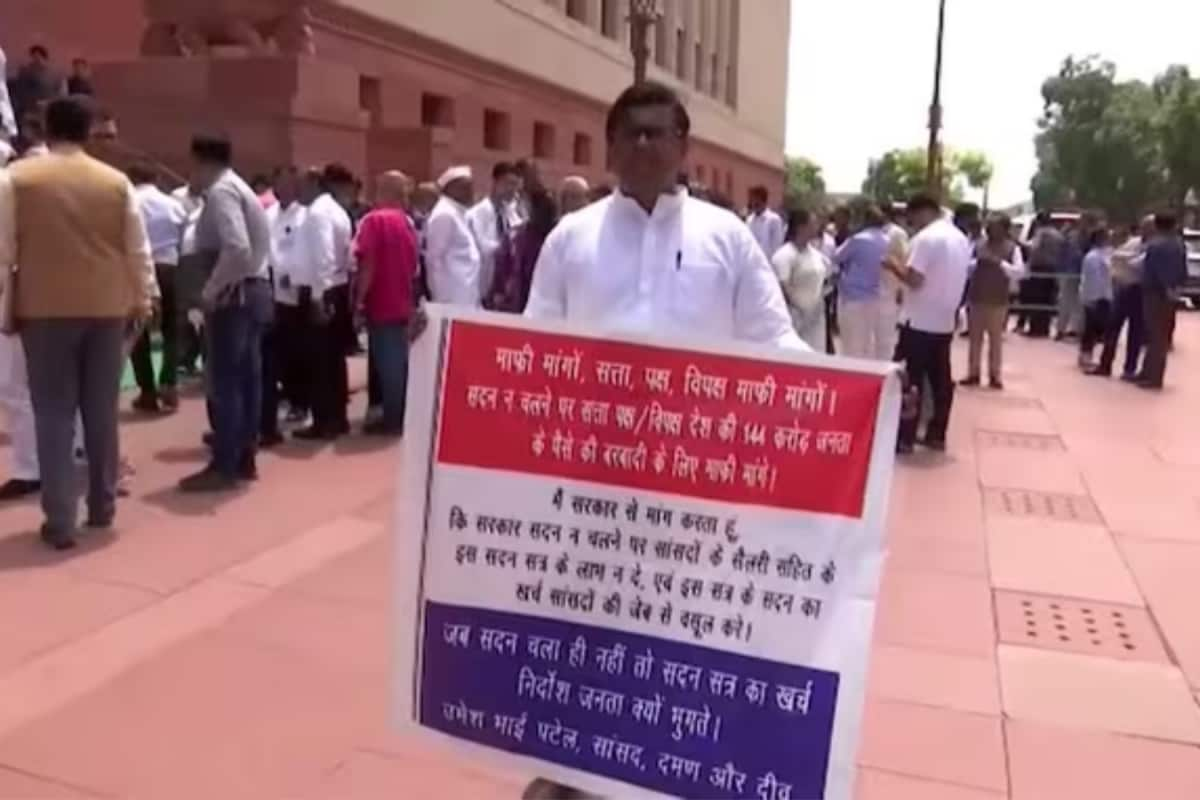

The issue of unproductive parliamentary sessions has once again come to the forefront, sparking debate about the financial responsibility of elected officials. An Independent MP from Daman and Diu, Umesh Patel, protested on the final day of the Monsoon session, holding a banner demanding that both ruling and opposition parties apologize for the "washed-out" session. Patel argued that the significant costs incurred during disrupted parliamentary proceedings should be recovered from the salaries of Members of Parliament (MPs).
The financial implications of parliamentary disruptions are substantial. It is estimated that running Parliament costs ₹2.5 lakh per minute. This includes the expenses of maintaining the premises, supporting staff, and providing allowances to the MPs. When parliamentary sessions are frequently adjourned due to protests, disagreements, or other disruptions, the costs continue to mount, while legislative work grinds to a halt.
Recent data indicates the extent of the problem. For instance, in just three days of the Monsoon session, disruptions in the Rajya Sabha cost taxpayers ₹10.2 crore, while the Lok Sabha saw a loss of ₹12.83 crore. With each House expected to be productive for six hours a day, excluding lunch, the financial strain of unproductive sessions is a cause for concern. During the winter session, disruptions in Parliament for about 90 hours led to a loss of ₹144 crore to the exchequer.
Calls for accountability have grown louder, with some suggesting that MPs should not receive their salaries for sessions significantly hampered by disruptions. Jai Panda, a politician from Biju Janta Dal, previously stated he would not accept his salary for November and December due to the lack of welfare work done during those months.
The disruption of parliamentary proceedings extends beyond financial losses. It also leads to the neglect of critical issues and delays in passing important legislation. For example, during a recent session, some bills were passed with minimal debate, such as an Income Tax bill that was 600 pages long but received less than six minutes of discussion. The focus shifts from addressing public concerns to political rhetoric, undermining the very purpose of parliamentary sessions.
The debate over who should bear the financial responsibility for wasted parliamentary sessions highlights the need for greater accountability and decorum in legislative bodies. Some argue that it is the government's responsibility to ensure structured and meaningful debate, while others point to the opposition's role in disrupting proceedings. Regardless of where the blame lies, the financial burden on taxpayers remains a pressing issue that demands attention and resolution.
As the nation grapples with economic challenges and pressing social issues, ensuring the efficient and productive functioning of Parliament is more critical than ever. Whether through salary deductions or other mechanisms, holding MPs accountable for wasted sessions could pave the way for a more responsible and effective legislative process.